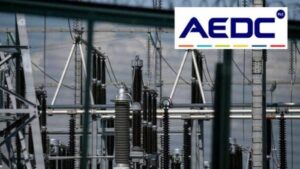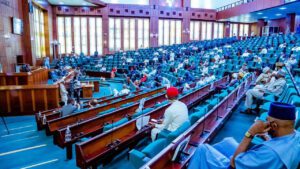Gas generators: MTN Nigeria lowers energy costs by N570m
MTN Nigeria has said that it has been able to lower its energy costs by over N570 million through the use of gas generators.
The company disclosed this in its 2023 climate change report where it highlighted its investments in clean energy technologies as part of its efforts to reduce emissions and help Nigeria achieve its 2050-2070 net zero target. The company disclosed that it has deployed three 1.1 megawatts (MW) gas generators has significantly reduced greenhouse gas emissions and lowered its energy costs.
In the report, the ICT company shares how it is partnering with a renewable energy Independent Power Producer (IPP) program to deploy a Compressed Natural Gas (CNG) power plan to supply both its corporate office, MTN Plaza, and main data centre in Ikoyi.
In addition, the company said it has also installed motion light sensors in buildings and switching centres to optimise power consumption and installed a 56-kilowatt proof-of-concept solar project, delivering more than 4,000-kilowatt hours of clean electricity each month.
According to the CEO of MTN Nigeria, Karl Toriola, the company’s net zero emissions target is part of MTN Group’s Project Zero which focuses on decreasing greenhouse gas emissions across its footprints, thus enhancing operational efficiency.
He said the company aims to do this by reducing energy usage, substituting non-green energy sources, and investing in certified climate protection projects with high environmental and social standards to offset the emissions that cannot be avoided.
“Our commitment to Nigeria goes beyond connectivity. We recognise the environmental challenges our nation faces, and we are dedicated to being part of the solution. Our investments in sustainable energy and infrastructure are not just good for business; they’re essential for the future of Nigeria,” he said.
Nigeria, through the Climate Change Act 2021, is seeking to achieve low greenhouse gas emissions, and green and sustainable growth by providing the framework to set a net zero GHG target between 2050 and 2070. The country aims to reach net zero as early as possible in the second half of the century.
Experts have concluded that energy transitioning is an intensive task that has to be gradual and intentional to ensure continual improvement and sustainability.
In line with this, the Nigerian Communication Commission (NCC) recently announced that it was working towards ensuring a complete move to alternative energy sources by all players in the telecom industry.
The Executive Vice Chairman, Prof. Umar Danbatta, disclosed this during a roundtable discussion with academia, industry, and other stakeholders in Lagos.
To that effect, Danbatta said the Commission planned to introduce policies that would encourage all telecom operators to adopt clean and sustainable energy sources, to reduce carbon footprint.




